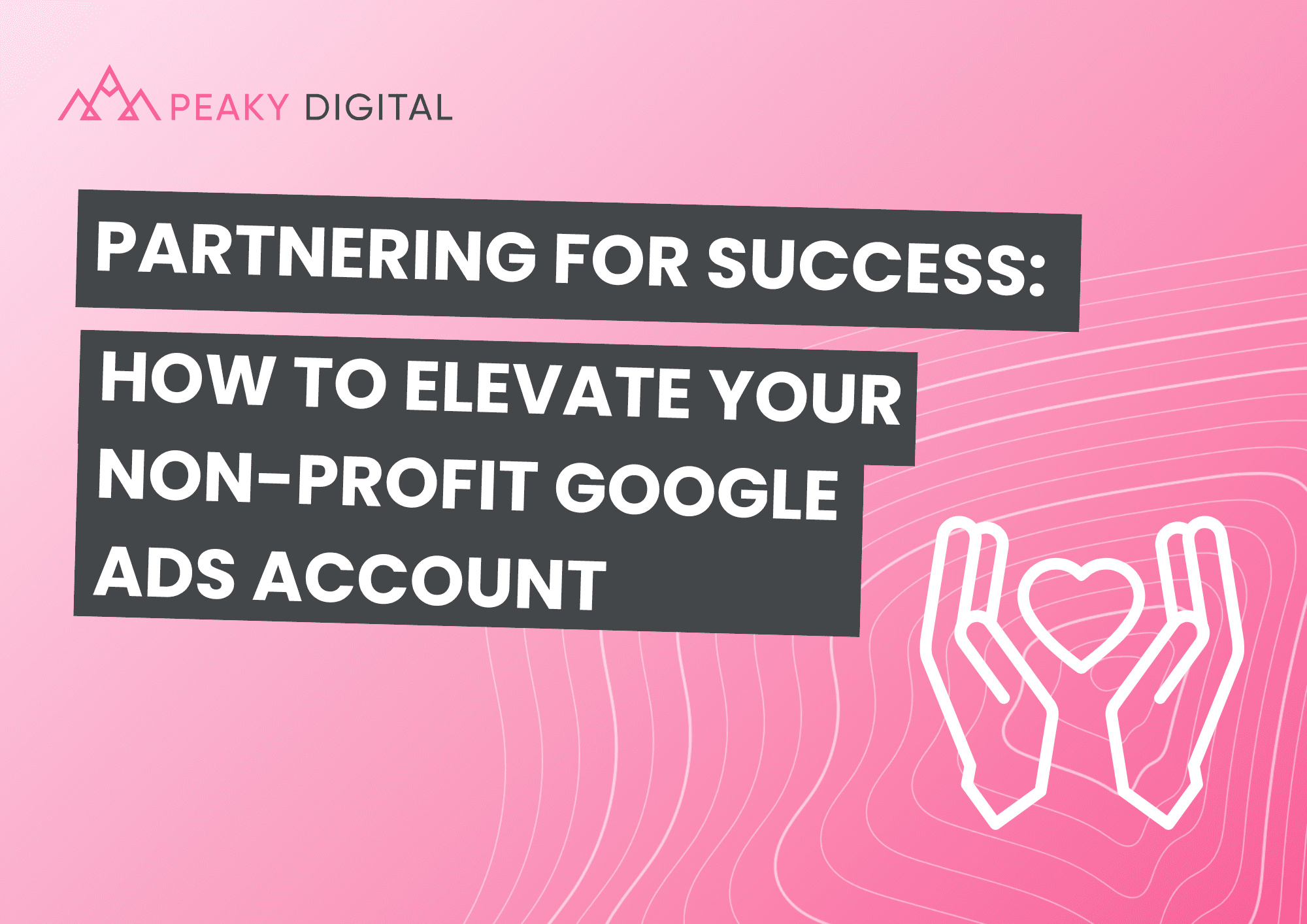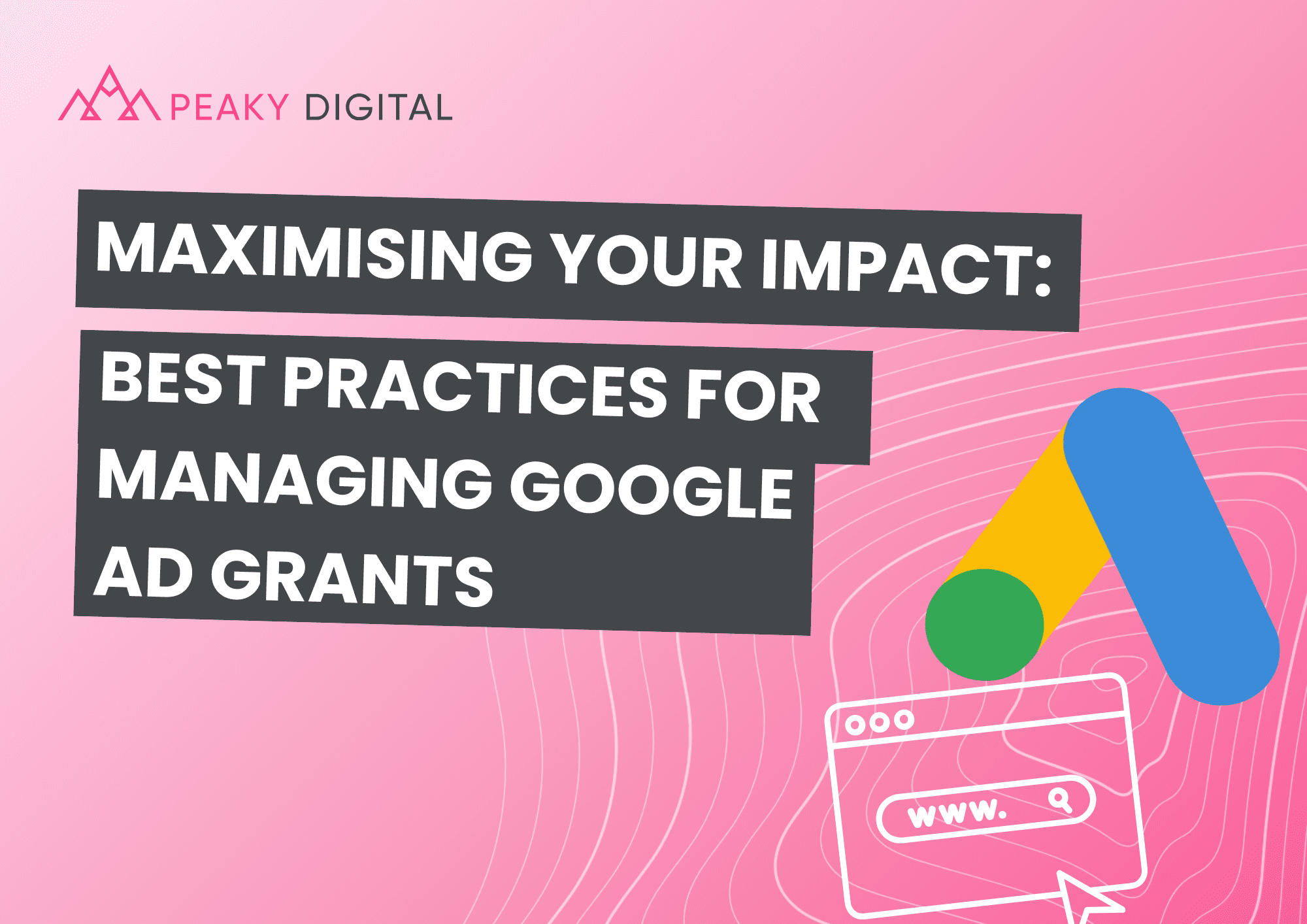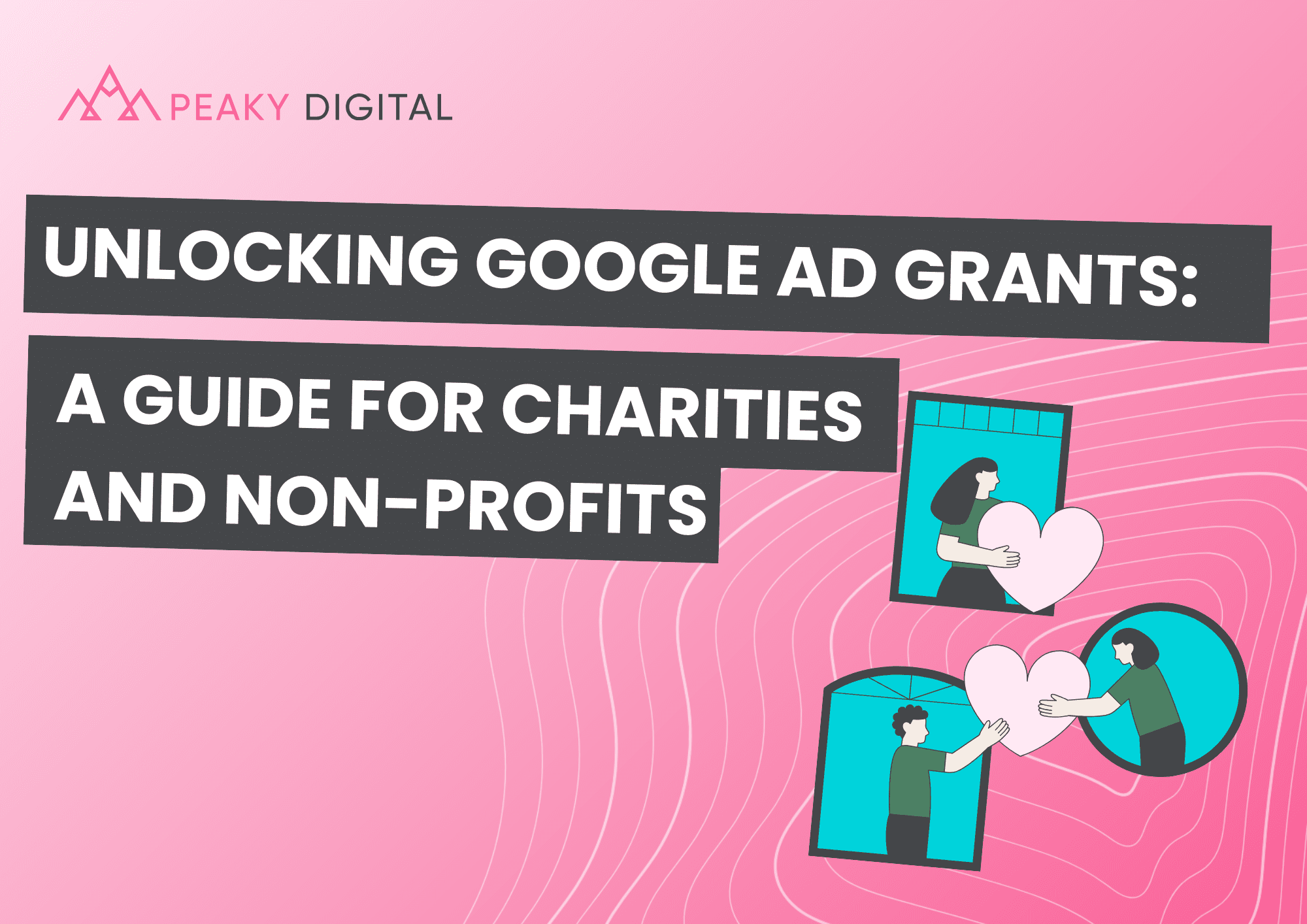
Partnering for Success: How to Elevate Your Non-Profit Google Ads Account
Apr 10, 2025
Managing a Google Ad Grant seems simple in theory but with Google’s strict Ads Grant policies,…
by Chlöe Davison
Jan 9, 2022

If you’re using Facebook to run paid social media advertising, there’s one tool that you absolutely need to utilise: the Facebook Pixel. Enabling you to track a range of events on your website, the Pixel is key for understanding how your Facebook campaigns are performing.
Whether you’re tracking high funnel events such as brand awareness, or more low funnel conversion-based events such as purchases, the Facebook Pixel is crucial at any stage of your campaign.
The Facebook Pixel is a piece of code that is placed on your website to help collect data and track events, making it one of the best ways to enhance customer experience on your social media. The Pixel is activated whenever a customer opens a webpage that has the Pixel installed on it. If they complete an event that you’re tracking, the code will send that information to Facebook for you to analyse there.
This ultimately helps you to measure how successful your campaigns are by understanding how your audience reacts to your ads. The Pixel will also help you to understand the customer journey and enable you to retarget customers who have previously shown interest in your brand.
The Pixel gives you the option to track a variety of events depending on your goals. These include page views, time on page, scroll depth, add to carts, conversions, and more!
Whether you’re creating a brand awareness campaign or a conversion-based campaign, the Facebook Pixel will help you to track all of your goals, and it’s a powerful tool when used in conjunction with the Facebook Conversions API [note for uploader – link to Facebook Conversions API blog once live].
The Facebook Pixel can also help you to understand your audiences better. Once tracking these events, you’ll be able to see which demographics are engaging or purchasing more from your brand. This enables you to then streamline your audiences and utilise your budget in the future.
As the Pixel registers your website visitors, you can use this mechanism to create remarketing campaigns that you know will drive results with engaged customers. You can also use this to create lookalike audiences in prospecting campaigns – consisting of brand new customers who have similar characteristics to your engaged audiences.
Before you start, you need to have a website set up and access to its code – either yourself or through a developer.
Firstly, go to Events Manager and select Connect Data Sources, then click Web. You then need to choose Facebook Pixel and create a name for it. After entering your website URL, you’ll have access to easy setup options.
The next part of the process may vary depending on the type of website you use. If you’re using a partner integration such as Shopify or WordPress, go to Events Manager and choose the Pixel you made. Opt for ‘Use A Partner’ and select your integration from the list. You’ll then be able to follow the instructions to complete the process.
If you’re doing this manually, you’ll need to choose the ‘Install Code Manually’ option and pass this to your developer, or paste the code into the header template on your website and then follow the instructions on Events Manager.
As the Facebook Pixel is based on the customer’s browser actions, it does mean they could opt out of cookies and third-party tracking which could lead to data being lost. Installing Facebook Conversions API alongside the Pixel enables you to track all events, as the Conversions API works through your website’s server. This ensures that all events that you’ve chosen to be tracked on your website will be recorded and securely sent through to Facebook.
Whether you’re just curious about Facebook advertising or looking to optimise your paid social media campaigns, we’re here to help every step of the way, from providing data-driven insights to producing paid social creatives for your platforms. Get in contact today to see how the Facebook Pixel can take your campaigns to the next level.
Brand awareness, business growth or a bigger and better ROI, our team of digital specialists are here to help you get the most from your brand. Let's start a new partnership today.

Apr 10, 2025
Managing a Google Ad Grant seems simple in theory but with Google’s strict Ads Grant policies,…

Apr 7, 2025
You’ve got the Google Ad grant for your organisation—but what’s next? Having free ad spend…

Apr 2, 2025
Imagine having up to $10,000 of free advertising every single month to shout about your cause. …